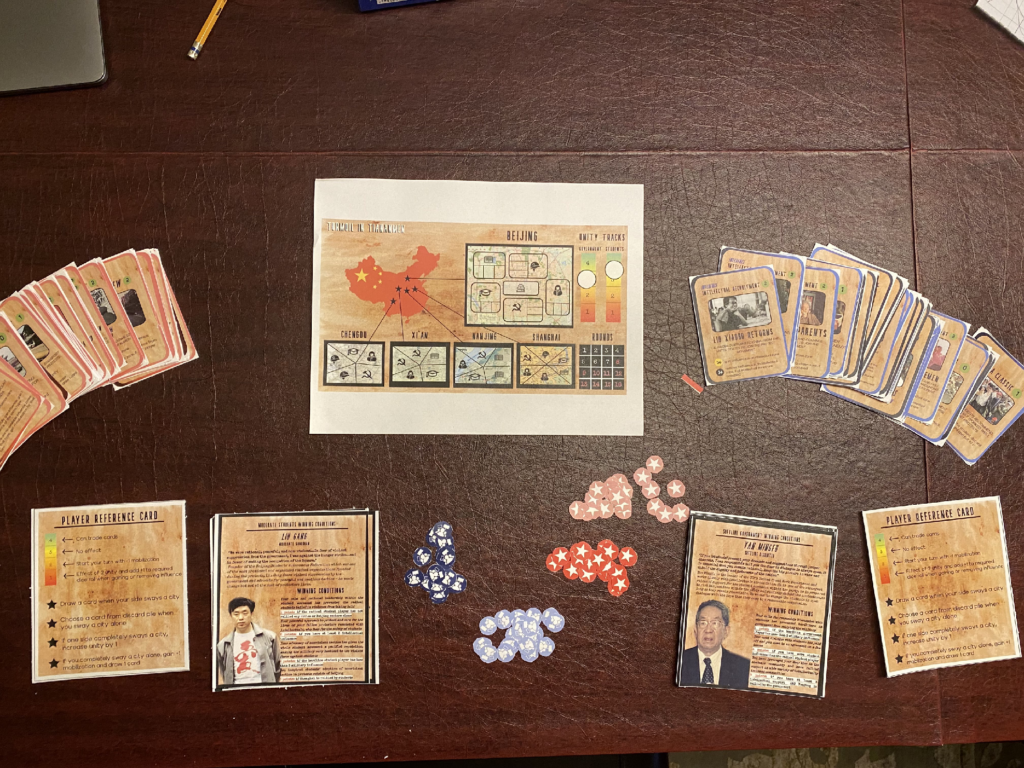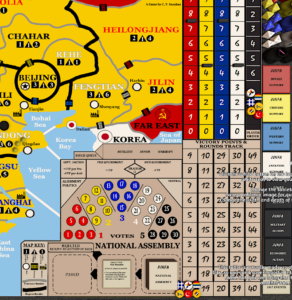Eligibility
Consistent with the Zenobia Award’s goals, the contest is limited to Contestants from underrepresented groups with ideas for tabletop game designs about human history. Applicants will have an opportunity to explain why their voice will contribute to diversity within the historical game community on the application form.
Games entered into the competition must be new, unpublished games. They may be at different stages of development, and designers may have different levels of experience, but the purpose of the Zenobia Award is to help guide new games towards publication.

Other Eligibility Considerations:
- Teams of designers may enter the competition as a single unit, and should fill out a single application.
- Only one game per designer may be entered in a given Zenobia Award competition.
- Past Contestants may re-enter only a new or substantially revised design.
- Award officials, volunteers, and/or staff of participating Publishers may not enter the contest.
- If you have any affiliations within the gaming industry that could cause a conflict of interest, disclose them. The evaluation of prototypes will be controlled for possible conflict of interest between entries and judges. The affiliation of both will be clearly stated.
DESIGN REQUIREMENTS

Each Contestant or team must present a single design idea for an historical tabletop game original to them and as yet unpublished and uncommitted to any publisher. The design idea may be newly conceived, or it may already be at a further stage of development. Additionally:
- The design idea must be for a manual tabletop game (board, card, dice, tile-laying, miniatures, etc.). It must have a closed-system rules set that does not rely on role-play or referee adjudication to resolve actions and reactions.
- The design must be rooted in a historical setting from any time up to the present day. It may concern political, social, cultural, scientific, economic, military, or any other human affairs in any combination.
- The game must be playable in under two hours. Longer games with at least one scenario playable in under two hours are eligible and will be judged by that scenario.
CONTEST PROCEDURE
Initial Application
- Each Contestant designer or design team will submit one Entry Application, completed in English, to the form that will be linked from the Zenobia Award website.
- Zenobia Award staff will review all applications and communicate their decisions to applicants roughly two weeks after the Application window has closed.
- Each successful contestant will be assigned to a mentorship team as well be granted access to Zenobia Award learning spaces, tools, and materials.
Stage One: Concept Proposal
Contestants who advanced from the application stage will provide a completed concept proposal in English to the Zenobia Award by the publicly scheduled due date. The concept proposal is a necessary step in the game design process that crystalizes critical aspects of the game design, such as player roles, game mechanics, the historical setting, and dynamics to be represented, and what historical sources inform the design. As such, the concept proposal is a powerful tool used to cultivate relationships between contestants and prospective publishers. Winning concept proposals will be shared with participating publishers.
- Zenobia Award staff will review concept proposals and communicate the results of the Stage One competition.
- All contestants will receive feedback on their concept proposals.
Stage Two: Draft Rules and Prototype
Contestants will then submit a playable Prototype in English, accompanied by both a draft rule book and any currently developed player aids such as charts, summary sheets, tableaus, and the like. The longest contest stage in the contest, participants should take full advantage of a range of mentoring and professionalization opportunities provided during the contest to improve their game design skills and to forge relationships with peers.
- Each playable prototype will be play-tested by at minimum two Zenobia judges.
- Three Zenobia Award finalists will be selected and announced.
- All contestants will receive feedback on their prototypes, rules drafts, and supporting materials.
Stage Three: Finalists Round
Finalist Contestants are encouraged but not required to revise prototypes, rules, and materials and resubmit them. Each submitted prototype will be play-tested by Zenobia Award judges who will select the winner and runners-up.
- All contestants will receive feedback on their prototypes, rules and supporting materials.

